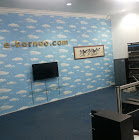"A web site without an Most Wanted Response (MWR) is like an amusement park without rides... what's the point?" - Ken Evoy
Many netrepreneurs started their online business the wrong way. They write, design and build their web site first before setting (or even knowing) what's their Most Wanted Response (MWR).
MWR is the single most important part of your entire web site. If you didn't set one, there is almost no chance for your web business to succeed. In fact, your web site exists to get the MWR.
What is an MWR?
Simply put, MWR is what you most want your visitor to do, or your most desired "visitor-must-do" action. What does your site exist for?
For example, the no. 1 MWR for
my non-SBI! site is for visitors to make a travel inquiry/request (i.e., our main service is as a trip advisor or vacation planner). The more inquiries I have, the more sales I will make.
But I know travel is not an easy thing to sell directly off the web. There is so much planning involved - for both the traveler and the planner. So, I have several other MWRs as complements to my no. 1 MWR such as:
- subscribe to my free newsletter
- download a free travel e-brochure
As such, before you write your first word, before you worry about your site design, graphics, etc...
It is most important for you to SET your Most Wanted Response (MWR).
The reason?
Setting the MWR will make you totally focus to design an effective web site - a site that sells!
Once you have set your MWR for your product/service, it will be easier for you to design the entire part of your web site towards getting your MWR.
Every content you write, every web page you add from the opening to the closer page, every graphic you include, every form you design, every breath you take (?), will be chosen to steadily increase your odds of getting the MWR.
If you make "getting the MWR" your overriding goal, your web business will have greater chances to succeed.
If you don't, your web business is doom to fail.

